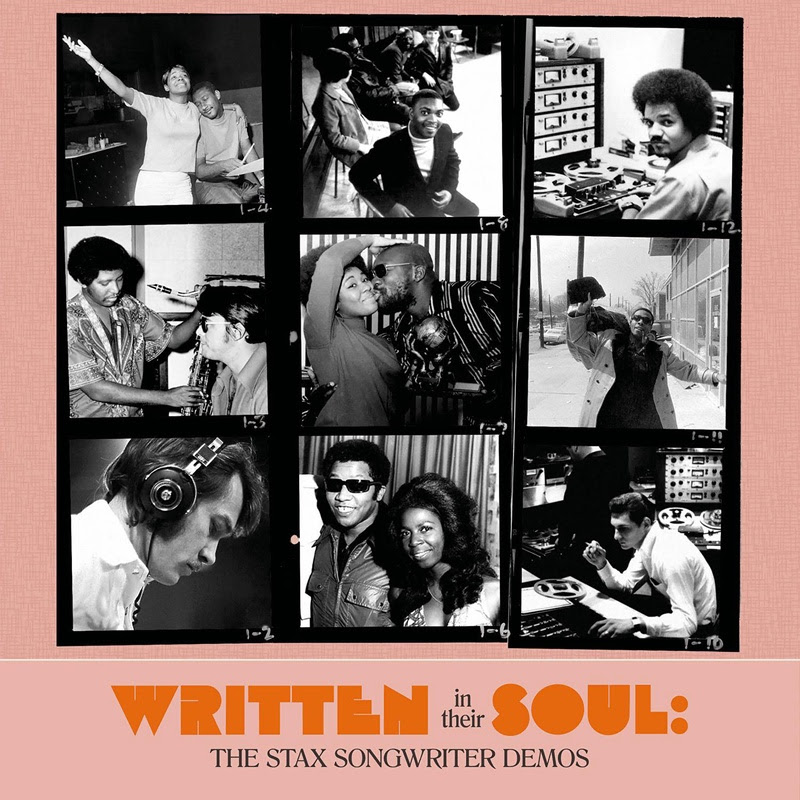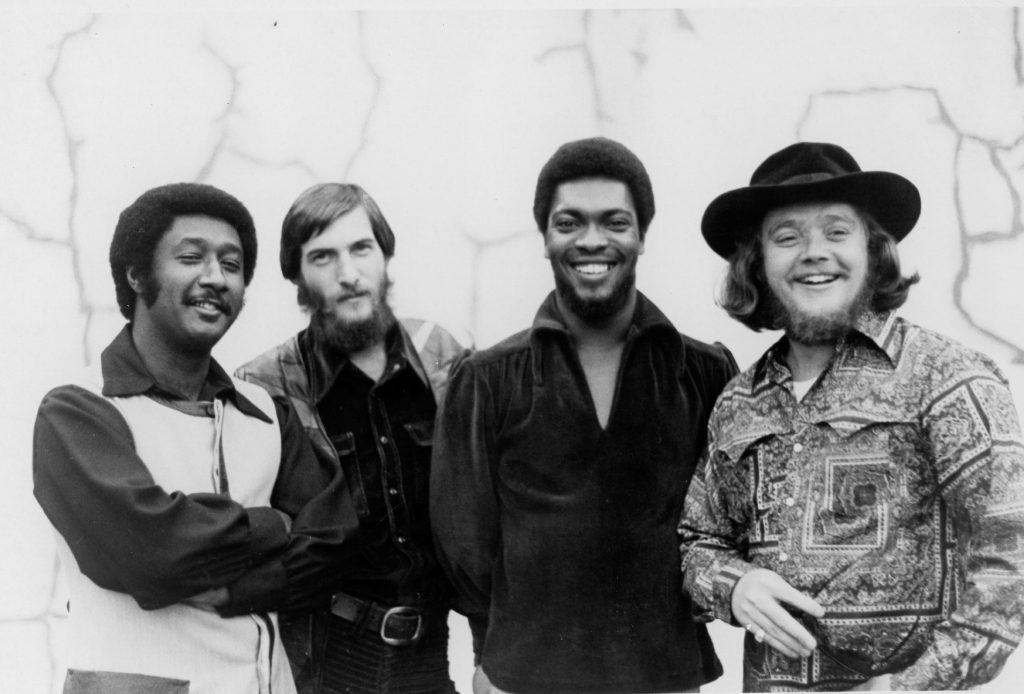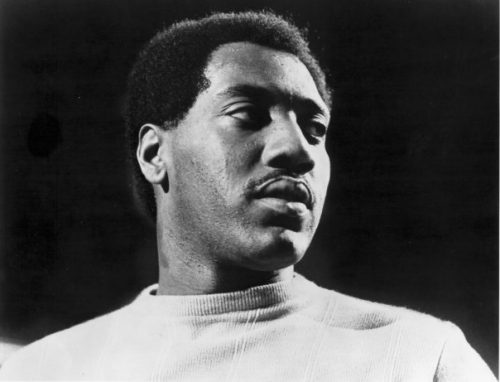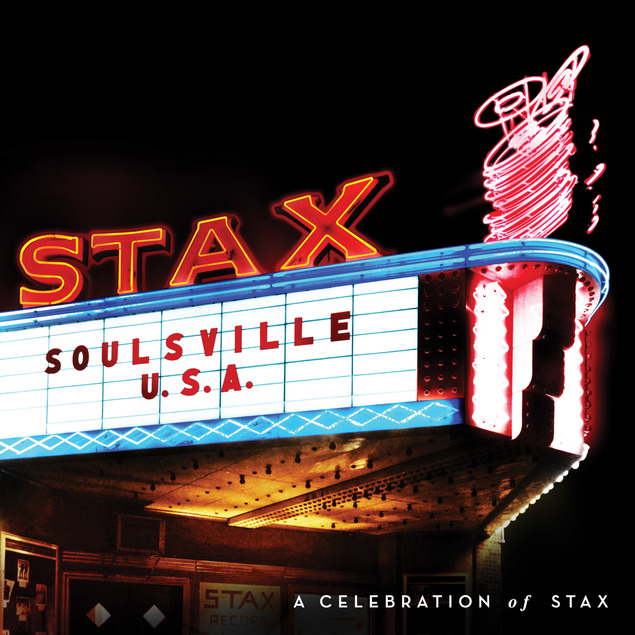 In its heyday, Stax Records was synonymous with soul music’s biggest stars, from Otis Redding and Carla Thomas to Sam & Dave and the Staple Singers. But behind their hits was a talented team of songwriters. Craft Recordings celebrates the work of these unsung heroes with a brand-new collection, Written in Their Soul: The Stax Songwriter Demos, released June 23, 2023, on CD. The seven-disc box set includes 146 demos (140 previously unreleased) from Stax’s roster of songwriters, including Bettye Crutcher, Homer Banks and William Bell. From early sketches of classic ’60s and ’70s hits to never-before-heard songs with full-blown arrangements, Written in Their Soul offers a fascinating glimpse behind the scenes of the storied Memphis label.
In its heyday, Stax Records was synonymous with soul music’s biggest stars, from Otis Redding and Carla Thomas to Sam & Dave and the Staple Singers. But behind their hits was a talented team of songwriters. Craft Recordings celebrates the work of these unsung heroes with a brand-new collection, Written in Their Soul: The Stax Songwriter Demos, released June 23, 2023, on CD. The seven-disc box set includes 146 demos (140 previously unreleased) from Stax’s roster of songwriters, including Bettye Crutcher, Homer Banks and William Bell. From early sketches of classic ’60s and ’70s hits to never-before-heard songs with full-blown arrangements, Written in Their Soul offers a fascinating glimpse behind the scenes of the storied Memphis label.
Stax Records, now owned by Concord, was founded by Jim Stewart in 1957 in Memphis, Tenn. It rose from a small, family-operated company to become one of the most influential record labels in the world, helping to create “The Memphis Sound” and launching the careers of icons such as Otis Redding, Isaac Hayes, Booker T. & the M.G.’s the Staple Singers, Sam & Dave, Rufus and Carla Thomas, the Bar-Kays, and dozens of other artists who helped change popular culture forever. In all, Stax placed 167 hit songs in the Top 100 in Pop and 243 hits in the Top 100 in R&B.
The terrific new demos collection was compiled by multiple Grammy-winning producer Cheryl Pawelski and restored/mastered by multiple Grammy-winning engineer Michael Graves; the songs featured on Written in Their Soul fall into three categories: demos that were released by artists at Stax or its subsidiary imprints, including Volt, We Produce and Enterprise (CDs 1-3); demos by Stax songwriters that were released by artists on other labels, such as Atlantic and Decca (CD 4); and a trove of hit-worthy recordings that were never released (CDs 5-7). This Amazon link for the set shows the complete track listing.
Listen to Jimmy Hughes’ “I Should Have Changed My Ways”
There’s also a new essay by Emmy- and GRAMMY-winning writer/producer Robert Gordon (Respect Yourself: The Stax Records Story) and Stax’s original Director of Publicity and two-time Emmy winner Deanie Parker, who later served as the founding president and CEO of the Soulsville Foundation, which encompasses the Stax Museum of American Soul Music, among other educational organizations. Parker, who joined the Stax fold in 1962, was also a songwriter at the label.
Related: Our story on Isaac Hayes, one of the greatest of Stax artists and songwriters
The demos serve as rough sketches of the subsequent master recordings on Stax that we treasure. Fans and record collectors can hear a first taste of Written in Their Soul with a demo of “634-5789 (Soulsville, USA).” Written by Eddie Floyd and Steve Cropper, the song was famously recorded by Wilson Pickett, who made it a #1 R&B hit and Top 20 pop single in 1966. Released on Atlantic Records, the song’s title was inspired by the Marvelettes’ 1962 hit, “Beachwood 4-5789,” while the enduring tune would later be recorded by Tina Turner, Ry Cooder and Bon Jovi, among others.
Listen to the demo of the Wilson Pickett smash “634-5789” as originally recorded by Eddie Floyd
The package also includes another Cropper and Floyd collaboration, “Looks Like Another Hot Summer.”
In 2007 I interviewed guitarist/songwriter and producer Cropper about the Stax label.
“Al Jackson, Booker ]T. Jones], Duck [Dunn] and I grew up playing nightclubs in Memphis. Wayne Jackson grew up that way,” Cropper said. “So we had that band mentality thing and we worked as a unit, because some guy who wants to go out and ego on stage is gonna blow it for everybody else. You have to play as a unit. We learned that in the studio, and we were there, not for ourselves but for the artist we were playing behind.
“To me, Stax was like the greatest basketball team that ever came together. When they went into the studio together magic things happen. And they won. And winning was to have a hit record, a hit single on the charts. The other thing that happened historically was that in 1968, the day that Martin Luther King was assassinated, the bubble was burst. Never was the same and will never ever be the same.

“I always said it didn’t have to happen in the first place and why did it have to happen in Memphis? A quiet town and everybody got along. You look back, and there were things happening around me that I wasn’t aware of. My buddies didn’t talk to me about it. We never had a problem. We went to each other’s houses, we hung out, we went to restaurants together, we were blood brothers. We were family, big time family. This changed everybody’s lives without question. Thank God, the Monterey Pop Festival was before that.”
When asked about demos becoming retail recordings, Cropper observed, “All of those things, you listen to them, and it’s sort of like a great actor—like if Gene Hackman takes a part, or if James Stewart takes a part, they become that character. And at the time you watched it, you became part of them. You don’t think about somebody else doing it.”
Listen to two demos sung by Bettye Crutcher, “Everybody is Talking Love” and “Too Much Sugar for a Dime”
In 2007 I also spoke with Stax mainstay Wayne Jackson, whose trumpet playing informed many of the label’s recordings.
“You can tell the horn sound,” said Jackson. “Me and [saxophonists] Andrew Love and Floyd Newman sound a certain way. All those records had that in common. All those records had Steve Cropper’s guitar, Al Jackson’s drums, Duck Dunn’s bass and Booker’s organ. Those things are very distinctive and that made up the Stax sound. And that’s where Otis came from.

“I loved Otis and he loved me. We were big friends. We all liked to laugh, and we were all young and the testosterone levels were out of this world. That’s what you heard in that music. Al Jackson was a joy to watch. He was the most fun drummer I ever was around. He was just the best drummer you ever heard and the best drummer you ever saw. He was a great musician. [Al Jackson died in 1975.]
“Musicians are not in competition. No one in that band was in competition. We were one thing. We were there to support and glorify Otis Redding. And we did that. And it shows on screen. We were there to respect, glorify and hold the singer up to glory. Whether it be Otis, Eddie Floyd or Sam & Dave, we did that. That was our job and we loved it and did it good. Everybody in that band had his position. Like Duck Dunn. Have you ever seen anybody work that hard on bass? It makes my hands cramp up.
Listen as Eddie Floyd, best known for “Knock on Wood,” sings “Love is You”
“Duck Dunn and I are both left-handed, born on the same day in the same hospital. It was a real spiritual and astrological happening at Stax. Andrew Love is three days older than me and he and David Porter were born the same day. Booker is a musical genius. Otis always brought a great contribution to all the sessions he was on. He was educated. Steve Cropper invented a style of guitar where the little guitar parts were singular. He played licks that became part of the song. The horns were part of the song. Without us they would not have been the same.
“Otis used a guitar to write songs and would use open key. So he could just bar it put a bar on his finger and play up the scale and chords. He could easily write with it. When I was with Otis he was on another energy track. Otis was like a 16-year-old boy with a hard-on all the time!
“All he could think about was writing a song and getting into a studio. That was his life. [His wife] Zelma and their kids and the farm and his music, in that order I think. But outside of the farm he didn’t think of nothing but his career. Otis did an amazing body of work in the six years he was recording.”
 What fans and record geeks might find the most striking about Written in Their Soul is hearing the label’s biggest singles in their earliest incarnations. Such examples include Mack Rice’s acoustic demo of “Respect Yourself” (a 1971 hit by the Staple Singers), written with Luther Ingram. Gordon and Parker include an anecdote from Rice, who revealed that the song came about from a conversation with Ingram. “One of us said, ‘A guy got to respect himself out here to get anyplace, you know?’ So it hit us both at the same time—‘Respect Yourself’ is a good title.”
What fans and record geeks might find the most striking about Written in Their Soul is hearing the label’s biggest singles in their earliest incarnations. Such examples include Mack Rice’s acoustic demo of “Respect Yourself” (a 1971 hit by the Staple Singers), written with Luther Ingram. Gordon and Parker include an anecdote from Rice, who revealed that the song came about from a conversation with Ingram. “One of us said, ‘A guy got to respect himself out here to get anyplace, you know?’ So it hit us both at the same time—‘Respect Yourself’ is a good title.”
In this demo, Mack Rice feeds us “Three Meals a Day”
While it is thrilling to hear the early workings of classic Stax tracks, an equal portion of Written in Their Soul is devoted to the songs that never made it out into the world. Many of these tracks are fully realized studio recordings that were sent to publishers for copywriting purposes. In addition to the previously mentioned unreleased demos, highlights from this section include two tracks featuring Otis Redding sound-alike Willie Singleton. The Rochester, N.Y., singer performed the songs “Somewhere in Somebody’s Heart” and “Love Treaty,” both of which could have easily been soul classics.
Other notable selections include would-be hits that were written and performed by stars like Frederick Knight (“I Like the Way You Groove Me”), Eddie Floyd (“Don’t You Know I’m All Alone” and “‘Till You’ve Been Loved By Me,” both collaborations with Steve Cropper), and William Bell (“It’s No Secret,” written with Booker T. Jones).
Here is Carl Smith’s “You’re Funny Boy”
In the Craft Recordings press announcement, Deanie Parker marveled, “Looking back at the breadth of demos collected here, this music has lasted over 50 years, and it’s still being studied, emulated, enjoyed. It has earned the right to become a tool used to teach a new generation: Culture. Music. Arts. Man’s humanity to man. There’s so many lessons to be learned from these demos, from the Stax vault, from the songwriters at Stax…But every great song starts with something that hits you.”
Listen to Leon Moore sing “What Would I Do?
Check out the trailer for Written in Their Soul


3 Comments
Love all soul music, memphis, philly and the rest! I grew up on it.
“Otis used a guitar to write songs and would use open key. So he could just bar it put a bar on his finger and play up the scale and chords.” Back in my my college days the teacher of our Rock Music class (yes, there was such a class, and yes, I actually took it) claimed that Dock of the Bay must have been written on the guitar because it’s all major chords (and that Like a Rolling Stone must have been written on the piano because the chords were all white-key diatonics in C). I didn’t take much stock in that, but this article demonstrates that he was correct in at least the first assertion.
Brilliant review. The song I Should of Changed My Ways knocked me out. A true classic. Thanks for this inspiring review.